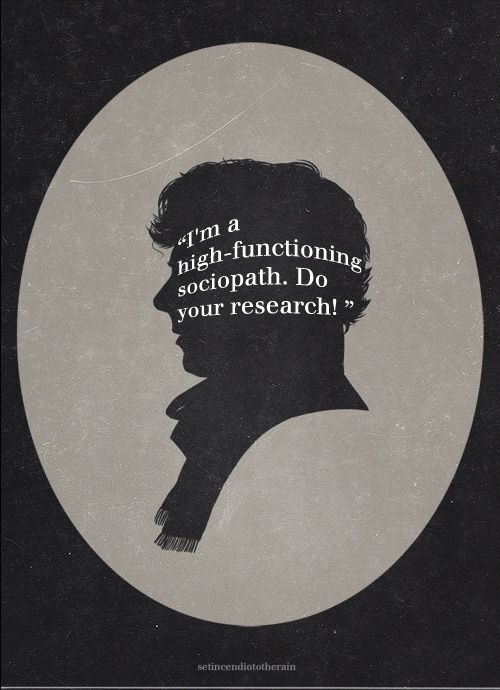Deal with a liar
How to Cope with Someone’s Compulsive Lies
Pathological lying
Pathological lying, also known as mythomania and pseudologia fantastica, is the chronic behavior of compulsive or habitual lying.
Unlike telling the occasional white lie to avoid hurting someone’s feelings or getting in trouble, a pathological liar seems to lie for no apparent reason. This can make it frustrating or hard to know what to do if you believe you’ve met one.
Though pathological lying has been recognized for more than a century, there’s not yet a clear universal definition of the condition.
Some pathological lying may result from a mental condition, such as antisocial personality disorder (sometimes called sociopathy), while others appear to have no medical reason for the behavior.
A pathological liar is someone who lies compulsively. While there appears to be many possible causes for pathological lying, it’s not yet entirely understood why someone would lie this way.
Some lies seem to be told in order to make the pathological liar appear the hero, or to gain acceptance or sympathy, while there’s seemingly nothing to be gained from other lies.
Some evidence from 2007 suggests that issues affecting the central nervous system may predispose someone to pathological lying.
Compulsive lying is also a known trait of some personality disorders, such as antisocial personality disorder. Trauma or head injuries may also play a role in pathological lying, along with an abnormality in hormone-cortisol ratio.
A 2016 study of what happens in the brain when you lie found that the more untruths a person tells, the easier and more frequent lying becomes. The results also indicated that self-interest seems to fuel dishonesty.
Though the study didn’t specifically look at pathological lying, it may give some insight into why pathological liars lie as much and as easily as they do.
The following are some of the scientifically recognized traits and characteristics of pathological liars.
Their lies seem to have no clear benefit
While a person might lie to avoid an uncomfortable situation, such as embarrassment or getting in trouble, a pathological liar tells lies or stories that don’t have an objective benefit.
Friends and family can find this especially frustrating because the person lying doesn’t stand to gain anything from their lies.
The stories they tell are usually dramatic, complicated, and detailed
Pathological liars are great storytellers. Their lies tend to be very detailed and colorful.
Even though obviously over-the-top, the pathological liar may be very convincing.
They usually portray themselves as the hero or victim
Along with being made the hero or victim in their stories, pathological liars tend to tell lies that seem to be geared at gaining admiration, sympathy, or acceptance by others.
They sometimes seem to believe the lies they tell
A pathological liar tells lies and stories that fall somewhere between conscious lying and delusion. They sometimes believe their own lies.
It’s difficult to know how to deal with a pathological liar who may not always be conscious of their lying. Some do it so often that experts believe they may not know the difference between fact and fiction after some time.
Pathological liars also tend to be natural performers. They’re eloquent and know how to engage with others when speaking. They’re creative and original, and quick thinkers who don’t usually show common signs of lying, such as long pauses or avoidance of eye contact.
When asked questions, they may speak a lot without ever being specific or answering the question.
Most people lie at one time or another. Previous research has suggested that we tell an average of 1.65 lies every day. Most of these lies are what are considered “white lies.”
Pathological lies, on the other hand, are told consistently and habitually. They tend to appear pointless and often continuous.
White lies
White lies are occasional and considered:
- small fibs
- harmless
- without malicious intent
- told to spare another’s feelings or avoid getting in trouble
Some examples of white lies include:
- saying you have a headache to get out of attending a meeting
- saying you’ve paid the phone bill when you forgot to pay it
- lying about why you were late for work
Pathological lies
Pathological lies are:
- told frequently and compulsively
- told for no apparent reason or gain
- continuous
- told to make the teller appear heroic or the victim
- not deterred by guilt or risk of getting found out
Examples of pathological lying:
- creating a false history, such as saying they’ve achieved or experienced something they haven’t
- claiming to have a life-threatening illness that they don’t have
- telling lies to impress others, such as saying they’re related to a famous person
Identifying a pathological liar isn’t always easy. While it may be human nature to be suspicious of anything that appears “too good to be true,” not all lies told by pathological liars are over-the-top.
While it may be human nature to be suspicious of anything that appears “too good to be true,” not all lies told by pathological liars are over-the-top.
They also tell “regular” lies that someone without a compulsion to lie might tell.
The following are some signs that may help you identify a pathological liar:
- they often talk about experiences and accomplishments in which they appear heroic
- they’re also the victim in many of their stories, often looking for sympathy
- their stories tend to be elaborate and very detailed
- they respond elaborately and quickly to questions, but the responses are usually vague and don’t provide an answer to the question
- they may have different versions of the same story, which stems from forgetting previous details
Knowing a pathological liar can be deeply frustrating because the lying appears to be pointless.
It can test the trust in any relationship and make it hard to even have a simple conversation with the person.
Here are a few pointers to help you handle a conversation with a pathological liar:
Don’t lose your temper
As frustrating as it may be, it’s important not to let your anger get the better of you when confronting a pathological liar. Be supportive and kind, but firm.
Expect denial
Someone who pathologically lies may have the tendency to first respond with a lie. If you confront them about their lying, chances are that they’ll deny it.
They may become enraged and express shock at the accusation.
Remember that it’s not about you
It’s hard not to take being lied to personally, but pathological lying isn’t about you. The person may be driven by an underlying personality disorder, anxiety, or low self-esteem.
Be supportive
When talking to the person about their lies, remind them that they don’t need to try to impress you. Let them know that you value them for who they really are.
Don’t engage them
When you notice the person lying, don’t engage them. You can question what they’re saying, which may encourage them to stop the lie at that point.
You can also let them know that you don’t want to continue the conversation when they’re being dishonest.
Suggest medical help
Without judgment or shaming, suggest that they consider professional help and let them know your suggestion comes from genuine concern for their well-being.
Be prepared with information about pathological lying, such as a printout of an article or a pamphlet that they can read when they’re ready. Expressing that you’re concerned that their behavior may result from an underlying medical condition may also help.
A pathological liar is an excellent storyteller and performer. They know how to captivate their audience by telling elaborate and fantastic stories while being very animated.
Along with knowing how to weave and express a detailed story, people are also fascinated by what drives a person to lie.
It’s natural to want to know why they’re lying, especially when there doesn’t seem to be an apparent reason for their lies.
Diagnosing a pathological liar can be difficult because of the many possible causes of the behavior. Speaking with the person and conducting a medical history and interview isn’t usually enough to make a diagnosis because of the person’s tendency to lie.
An important part of diagnosing a pathological liar is determining if they recognize that they’re lying or believe the lies they tell.
Some professionals use a polygraph, also known as a lie detector test. The test isn’t to catch them in a lie, but to see how well or often they “beat” the polygraph as this suggests that they believe their lies or have become good at using other measures to convince others of their lies.
Some professionals also interview family members and friends when diagnosing a pathological liar.
Treatment will depend on whether or not the pathological lying is a symptom of an underlying psychiatric condition.
Treatment would include psychotherapy and may also include medication for other issues that might be fueling the behavior, such as drugs used to treat anxiety or depression.
How to empathize and cope with a pathological liar comes down to an understanding of what may be causing this person to lie while being supportive.
It’s likely that the lying is a symptom of another issue that can be treated. Encourage them to get the help they need.
How to Cope with Someone’s Compulsive Lies
Pathological lying
Pathological lying, also known as mythomania and pseudologia fantastica, is the chronic behavior of compulsive or habitual lying.
Unlike telling the occasional white lie to avoid hurting someone’s feelings or getting in trouble, a pathological liar seems to lie for no apparent reason. This can make it frustrating or hard to know what to do if you believe you’ve met one.
Though pathological lying has been recognized for more than a century, there’s not yet a clear universal definition of the condition.
Some pathological lying may result from a mental condition, such as antisocial personality disorder (sometimes called sociopathy), while others appear to have no medical reason for the behavior.
A pathological liar is someone who lies compulsively. While there appears to be many possible causes for pathological lying, it’s not yet entirely understood why someone would lie this way.
Some lies seem to be told in order to make the pathological liar appear the hero, or to gain acceptance or sympathy, while there’s seemingly nothing to be gained from other lies.
Some evidence from 2007 suggests that issues affecting the central nervous system may predispose someone to pathological lying.
Compulsive lying is also a known trait of some personality disorders, such as antisocial personality disorder. Trauma or head injuries may also play a role in pathological lying, along with an abnormality in hormone-cortisol ratio.
A 2016 study of what happens in the brain when you lie found that the more untruths a person tells, the easier and more frequent lying becomes. The results also indicated that self-interest seems to fuel dishonesty.
The results also indicated that self-interest seems to fuel dishonesty.
Though the study didn’t specifically look at pathological lying, it may give some insight into why pathological liars lie as much and as easily as they do.
The following are some of the scientifically recognized traits and characteristics of pathological liars.
Their lies seem to have no clear benefit
While a person might lie to avoid an uncomfortable situation, such as embarrassment or getting in trouble, a pathological liar tells lies or stories that don’t have an objective benefit.
Friends and family can find this especially frustrating because the person lying doesn’t stand to gain anything from their lies.
The stories they tell are usually dramatic, complicated, and detailed
Pathological liars are great storytellers. Their lies tend to be very detailed and colorful.
Even though obviously over-the-top, the pathological liar may be very convincing.
They usually portray themselves as the hero or victim
Along with being made the hero or victim in their stories, pathological liars tend to tell lies that seem to be geared at gaining admiration, sympathy, or acceptance by others.
They sometimes seem to believe the lies they tell
A pathological liar tells lies and stories that fall somewhere between conscious lying and delusion. They sometimes believe their own lies.
It’s difficult to know how to deal with a pathological liar who may not always be conscious of their lying. Some do it so often that experts believe they may not know the difference between fact and fiction after some time.
Pathological liars also tend to be natural performers. They’re eloquent and know how to engage with others when speaking. They’re creative and original, and quick thinkers who don’t usually show common signs of lying, such as long pauses or avoidance of eye contact.
When asked questions, they may speak a lot without ever being specific or answering the question.
Most people lie at one time or another. Previous research has suggested that we tell an average of 1.65 lies every day. Most of these lies are what are considered “white lies.”
Pathological lies, on the other hand, are told consistently and habitually. They tend to appear pointless and often continuous.
They tend to appear pointless and often continuous.
White lies
White lies are occasional and considered:
- small fibs
- harmless
- without malicious intent
- told to spare another’s feelings or avoid getting in trouble
Some examples of white lies include:
- saying you have a headache to get out of attending a meeting
- saying you’ve paid the phone bill when you forgot to pay it
- lying about why you were late for work
Pathological lies
Pathological lies are:
- told frequently and compulsively
- told for no apparent reason or gain
- continuous
- told to make the teller appear heroic or the victim
- not deterred by guilt or risk of getting found out
Examples of pathological lying:
- creating a false history, such as saying they’ve achieved or experienced something they haven’t
- claiming to have a life-threatening illness that they don’t have
- telling lies to impress others, such as saying they’re related to a famous person
Identifying a pathological liar isn’t always easy. While it may be human nature to be suspicious of anything that appears “too good to be true,” not all lies told by pathological liars are over-the-top.
While it may be human nature to be suspicious of anything that appears “too good to be true,” not all lies told by pathological liars are over-the-top.
They also tell “regular” lies that someone without a compulsion to lie might tell.
The following are some signs that may help you identify a pathological liar:
- they often talk about experiences and accomplishments in which they appear heroic
- they’re also the victim in many of their stories, often looking for sympathy
- their stories tend to be elaborate and very detailed
- they respond elaborately and quickly to questions, but the responses are usually vague and don’t provide an answer to the question
- they may have different versions of the same story, which stems from forgetting previous details
Knowing a pathological liar can be deeply frustrating because the lying appears to be pointless.
It can test the trust in any relationship and make it hard to even have a simple conversation with the person.
Here are a few pointers to help you handle a conversation with a pathological liar:
Don’t lose your temper
As frustrating as it may be, it’s important not to let your anger get the better of you when confronting a pathological liar. Be supportive and kind, but firm.
Expect denial
Someone who pathologically lies may have the tendency to first respond with a lie. If you confront them about their lying, chances are that they’ll deny it.
They may become enraged and express shock at the accusation.
Remember that it’s not about you
It’s hard not to take being lied to personally, but pathological lying isn’t about you. The person may be driven by an underlying personality disorder, anxiety, or low self-esteem.
Be supportive
When talking to the person about their lies, remind them that they don’t need to try to impress you. Let them know that you value them for who they really are.
Don’t engage them
When you notice the person lying, don’t engage them. You can question what they’re saying, which may encourage them to stop the lie at that point.
You can also let them know that you don’t want to continue the conversation when they’re being dishonest.
Suggest medical help
Without judgment or shaming, suggest that they consider professional help and let them know your suggestion comes from genuine concern for their well-being.
Be prepared with information about pathological lying, such as a printout of an article or a pamphlet that they can read when they’re ready. Expressing that you’re concerned that their behavior may result from an underlying medical condition may also help.
A pathological liar is an excellent storyteller and performer. They know how to captivate their audience by telling elaborate and fantastic stories while being very animated.
Along with knowing how to weave and express a detailed story, people are also fascinated by what drives a person to lie.
It’s natural to want to know why they’re lying, especially when there doesn’t seem to be an apparent reason for their lies.
Diagnosing a pathological liar can be difficult because of the many possible causes of the behavior. Speaking with the person and conducting a medical history and interview isn’t usually enough to make a diagnosis because of the person’s tendency to lie.
An important part of diagnosing a pathological liar is determining if they recognize that they’re lying or believe the lies they tell.
Some professionals use a polygraph, also known as a lie detector test. The test isn’t to catch them in a lie, but to see how well or often they “beat” the polygraph as this suggests that they believe their lies or have become good at using other measures to convince others of their lies.
Some professionals also interview family members and friends when diagnosing a pathological liar.
Treatment will depend on whether or not the pathological lying is a symptom of an underlying psychiatric condition.
Treatment would include psychotherapy and may also include medication for other issues that might be fueling the behavior, such as drugs used to treat anxiety or depression.
How to empathize and cope with a pathological liar comes down to an understanding of what may be causing this person to lie while being supportive.
It’s likely that the lying is a symptom of another issue that can be treated. Encourage them to get the help they need.
9 ways to deal with a liar
“I think that 80 percent of people will always help you and tell you the truth, but…the remaining 20 percent are scammers and liars. Unfortunately, it's a fact." - Tom Hanks
Well, we are all not without sin. Even the most honest of us have had to tell a lie a couple of times in our lives. Is not it? But you cannot be called a liar.
Some people spew lies all their lives. They deserve to be labeled "Liar".
University of Massachusetts research has shown that pathological liars tell lies three times in ten minutes. How they manage to do this is beyond our understanding.
How they manage to do this is beyond our understanding.
Be careful when dealing with such people. They can not only annoy us with their eternal lies, but also draw out all our energy and patience.
Here are nine ways to deal effectively with liars.
Make sure that the person is actually lying
It is very unpleasant to accuse a person of what he did not actually do. Therefore, learn to pay attention to how a person behaves when he is not lying.
Compare this behavior with the present. A liar can behave in a completely different way: be restless, look away, show anxiety.
Maybe it's time to talk to him about it.
Check the Facts
Put on your Sherlock Holmes hat and do some investigative work. Uncover and write down all facts related to the lie.
You must have accurate and verified information in order to have a constructive conversation with a deceiver.
At this stage, you are almost completely sure that he lied to you.
Determine the course of action
If you know for sure that you are dealing with lies, it's time to consider your plan of action. Only you know the context of the situation and the seriousness of the lie, so it is up to you how you deal with it.
Was this the first time or was it normal for him? What are the consequences? All factors must be taken into account.
Call him to talk
For some of us, this step can be difficult. This is especially true for those who consciously avoid conflicts.
To overcome this hesitation, once again remind yourself of what is at stake. What is the first thing that suffers from the fact that a person is lying to you?
Remember that you are not him
Dealing with a chronic liar is not always easy. But don't stoop to his level. Try to be above personal reproaches and insults.
Strictly adhere to your own principles and control yourself.
Communicate culturally
Wait for the right moment and say: “You know, one thing is on my mind. I would like to discuss this with you."
I would like to discuss this with you."
Try opening the conversation with "Here's what I heard" or "Here's what I know."
Be reserved, speak calmly and measuredly. Don't let the conflict escalate unless absolutely necessary.
Watch his reaction
There are three scenarios. Usually liars:
- Deny
- Agree
- Protected
The only one of these options that can suit you is an admission of his guilt.
Assuming that you followed all the previous points, most likely you will. Otherwise, his actions will look stupid.
"Send" him a stern message
It is very important not to make a mistake here, because you have become a victim of someone's lies or manipulation.
Tell them in a calm but firm voice that you will not tolerate such lies; you are an honest and open person, and expect the same from others.
Inner reflections
You may need time to fully recover after being deceived by a person you trusted. Remember that not all people are like that.
Remember that not all people are like that.
Take it on faith that most people are honest with each other. Reconsider your attitude towards the person who set you up or betrayed you.
Forgive him. Do this at least for the sake of your inner peace.
Team Growth Phase, Growth Phase
Sourced from: powerofpositivity.com
Why Candidates Lie During Interviews and What to Do About It
In many companies, a polygraph psychologist is hired to do this. respiratory rate, heart rate and others in order to find out how reliable the reported information is.
But, firstly, a polygraph is a rather expensive pleasure. Secondly, a polygraph test does not give a definite answer to the question of whether a person is lying (there are no serious scientific studies confirming this). Thirdly, applicants have an extremely negative attitude towards the lie detector, and one can understand them: to sit for more than two hours, being hung with several sensors, and answering monotonous and not always pleasant questions . .. As if they had done something terrible, and now it is necessary to spend careful investigation-experiment.
.. As if they had done something terrible, and now it is necessary to spend careful investigation-experiment.
Are there more humane ways to recognize untruth?
The world-famous researcher of lies, the American psychologist Paul Ekman, in his book "Psychology of Lies" defines deceit as an act by which one person deliberately misleads another without informing about the purpose of this action . Ekman identifies two forms of lying: distortion and silence. With distortion, a person gives out false information as true, and with default , he hides true information, but does not report false information either.
With regard to the interview, most often you have to deal with with the default : after all, most of the facts from the resume can be checked if desired (education will be confirmed by diplomas; age - passport; merits at the previous place of work - former colleagues; professional qualities - interview with a future leader; no criminal record - security service), so distorting information is pretty stupid. But the applicant can really keep silent about a lot, but another question is what exactly you need to know about him.
But the applicant can really keep silent about a lot, but another question is what exactly you need to know about him.
At the same time, it is also quite difficult to recognize a lie during an interview. In an attempt to conform to certain social stereotypes, candidates put on emotional masks, and most often, according to Ekman, people “put on” a smile as a mask. It is believed that thanks to the joyful facial expression, it is much easier to deceive, besides, a smile is a traditional element of greeting. Joy is also easier to depict than any other emotion (try, for example, convincingly portray anger or fear), thereby hiding true feelings.
Each candidate may have different reasons for withholding certain information. To summarize, applicants simply do not want any information to interfere with their employment . In addition, the desire to appear better than they are is characteristic of the vast majority of people. We collected funny cases at interviews in one of our articles.
What important things can applicants hide from you?
Lack of motivation. Candidates usually have an idea that at the interview they need to prove themselves as a person who has dreamed of working in this particular company all his life. Sometimes they try too hard, trying to show feelings that may not be there.
Career gaps. If the candidate had breaks between different places of work, you are unlikely to hear anything reliable. Even if it was important for the applicant to just take a break for a few months, he can hide this fact so that you do not think, for example, that he gets tired too quickly. Unfortunately, you can hardly check this.
Reasons for leaving the previous job and income level. Talking badly about former employers is not accepted. If there were serious conflicts, this will be hidden from you, including by the company itself - no one wants to spoil the reputation. Here it will be important during the interview to talk about the rules of the company and what happens if these rules are violated. As for the salary in last place, here the candidate can lie so that there is not a big difference between the level of the past and the offered income. According to HeadHunter's research, most employers believe that candidates sugarcoat their salaries. So why tell the truth if they won't believe you anyway?
As for the salary in last place, here the candidate can lie so that there is not a big difference between the level of the past and the offered income. According to HeadHunter's research, most employers believe that candidates sugarcoat their salaries. So why tell the truth if they won't believe you anyway?
Professional skills and knowledge of software. The case when the candidate can pass off the ability to build a table in Excel as skills in working with big data, and the basics of using a graphic editor as a confident command of digital design. A well-written test task together with the head of the department will help to understand that from the resume of the applicant it is really within his power. At the interview, it is worth asking about how the candidate approached solving the problem, why he did it this way and not otherwise, what helped him in his work. So it will be easier for you to understand whether the applicant completed the task himself.
Negative qualities and bad habits. If the applicant has a problem with alcohol, you can easily find out at the next corporate party, and it will be great if he falls on the candidate's probationary period. And if no jokes, then hardly anyone will directly say that they smoke a lot or like to drink, and no checks will help here. The same is with negative qualities: short temper, irritability, self-doubt will be hidden from you. The interview situation is too tense to share such nuances.
If the applicant has a problem with alcohol, you can easily find out at the next corporate party, and it will be great if he falls on the candidate's probationary period. And if no jokes, then hardly anyone will directly say that they smoke a lot or like to drink, and no checks will help here. The same is with negative qualities: short temper, irritability, self-doubt will be hidden from you. The interview situation is too tense to share such nuances.
It is difficult to influence the degree of sincerity of a candidate, but it is possible. Let's talk about the main points that can help you create the necessary atmosphere for the candidate to be as honest with you as he can afford it.
❶ Accept that people lie. And there is. By giving a person the right to lie, you first of all remove yourself from the role of an investigator who is looking for a criminal. This position does not negate the fact that you need to find the most suitable candidate and ask him all the necessary questions, but it helps a lot to relieve tension during the interview process, because of which the applicant only closes more. No to an interrogation, yes to a professional conversation.
No to an interrogation, yes to a professional conversation.
❷ Check if you are lying to the candidate. Sometimes applicants, having seen a vacancy, simply try to "pull" themselves into it, editing their resumes and distorting the facts at the interview. It is possible that already in the vacancy itself there are not quite honest expectations or requirements that are not really needed in the performance of duties (the joke about knowledge of English in vacancies has become beaten for this very reason). Honest and open communication with a candidate can elicit counter sincerity.
❸ Many job seekers think that recruiters are machines that do everything to prevent them from getting a job. Job search stress plays into the hands of such fantasies, so break the mold and let the candidate know that you are a living person, experiencing emotions, but at the same time doing your job professionally. When you have an on-duty smile-mask on your face, you will probably find the same thing on the face of the applicant, so just a couple of words “for life” will greatly reduce the degree of tension. And your sincere answers to the candidate's questions about the inner workings of the company will contribute to mutual trust, so you can hear from the applicant a little more than he planned to tell you.
And your sincere answers to the candidate's questions about the inner workings of the company will contribute to mutual trust, so you can hear from the applicant a little more than he planned to tell you.
It cannot be said that there are universal signs of a lie, since, for example, one person can tug at the earlobe from strong excitement, and the other - because of a habit from childhood. But the expression of emotions is universal even for people from different cultures, which was carefully studied by the aforementioned American psychologist Paul Ekman. So, fear, anger or surprise will be equally reflected on the faces of the inhabitants of Papua New Guinea, Russia and Japan.
A lot is known about how emotions are expressed on people's faces, so the best thing you can do to more confidently “read” candidates is to learn to recognize the emotions of others as accurately as possible. As a rule, this process begins with ability to understand one's emotions well .
Studying the literature on the psychology of emotions and emotional intelligence, as well as related courses, will help you better understand what is happening between you and the applicant when you are talking. For example, if you notice that your question scared or surprised the candidate, you can politely ask about it.
It is also worth remembering the tuning techniques with the interlocutor: for example, mirroring the pose or adjusting to the rhythm of his breathing. Thanks to these simple techniques, it is easier to establish a trusting contact with the candidate.
And of course trust your intuition . If there is something that worries you about the applicant, express your doubts by asking tactful questions, for example: “Are you sure that you can handle this amount of work?”
And don't forget that interviews are always stressful for the person. Therefore, slight excitement, trembling hands, burning cheeks are normal. Don't dwell on manifestations of psychosomatics, do not draw a conclusion based on manifestations of anxiety or one unsuccessful answer - consider the totality of all factors.














